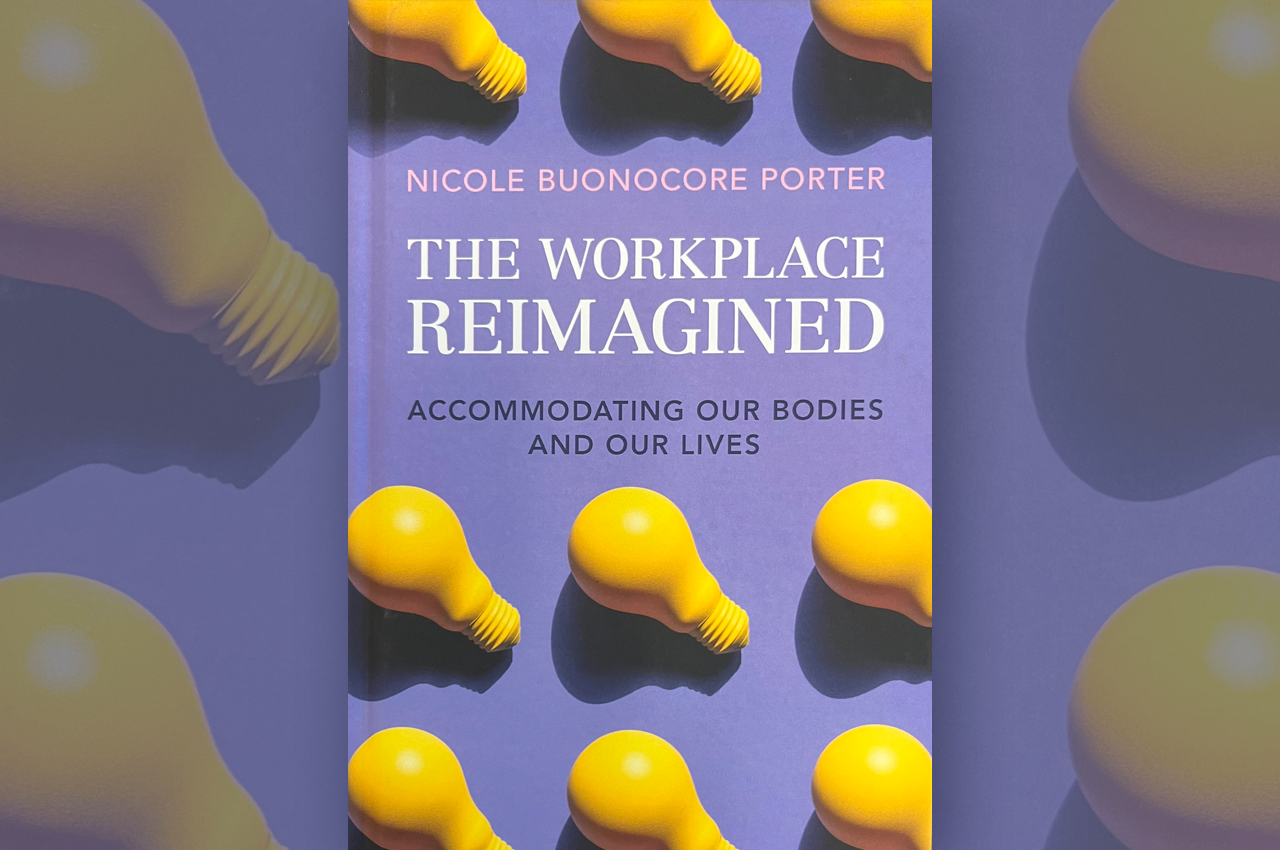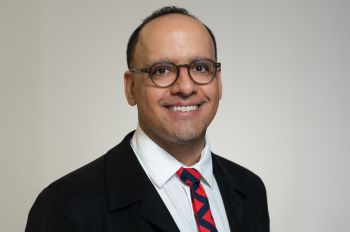Finding Balance: Chicago-Kent Professor Releases Book on Creating Humane Workplaces

“No one should have to sacrifice their health, their children, their family members’ well-being,” says Chicago-Kent College of Law Professor Nicole Buonocore Porter. “Everyone needs balance.”
Porter says that we all could use a little work-life balance, and that our policies should support that pursuit. Her new book, The Workplace Reimagined: Accommodating Our Bodies and Our Lives (Cambridge University Press 2023), examines simple policy changes that could help create more humane workplaces.
When Porter, who is also Director of Chicago-Kent's Martin H. Malin Institute of Law and the Workplace, first started conducting her research, she was studying the needs of workers who are caregivers and those living with disabilities.
“I started seeing all these similarities between those two groups of people in that they both have difficulty meeting some of their employers’ rules and policies,” Porter says.
“Employers want someone who’s always available, is willing to work full-time, overtime, travel on a moment’s notice, able to do all the physical tasks,” she continues. “Never needing accommodations is what most employers expect and want.”
Porter says those workers often need to request accommodations, which leads to a phenomenon she calls “special treatment stigma” where employers treat employees worse once they have requested an accommodation.
“If employers know or even perceive that you might need an accommodation, you may be less likely to be hired,” she says. “You’re going to suffer through fewer promotions. You’re going to suffer through less advancement opportunities, maybe lower pay, all because you’re not the ‘perfect’ employee.”
The stigma doesn’t end there. Coworkers often feel resentment toward employees who receive accommodations.
In the book, Porter proposes an alternate solution. She believes everyone should be able to ask for accommodations from employers, for all sorts of reasons.
“One big piece of the reform that I’m suggesting in the book is that we would have a universal accommodation mandate,” she says. “This means all employees could ask for variations in how, where, and when the job is done.”
Porter doesn’t suggest that all employee requests would have to be granted. However, she believes that there are many ways that employers could accommodate their workers, creating a more flexible and humane workplace.
And while she has been researching the topic for years, it became even more relevant in 2020.
She was getting ready to sit down and write the book when the COVID-19 pandemic sent workers home by the millions, and employers had no choice but to become more flexible.
“The one thing it did allow us, as a society, to do is to realize that some of what we thought was sort of impossible is in fact possible,” she says.
Under current law, employers must provide reasonable accommodations for employees with disabilities, unless it places an “undue hardship” on the employer. For years, remote work has largely been considered an unreasonable accommodation.
“There have been disability cases about remote work for decades. Most employers were ridiculously stringent, asking how can employees be supervised, how can they engage in teamwork, how can they help their customers or clients,” says Porter. “They just simply couldn’t imagine it, and courts would just rubber stamp the employers’ decisions.”
Now, as we exit the pandemic, remote work remains common in offices across the country, even for workers who aren’t living with disabilities. Porter believes that a universal accommodation mandate could help usher in other systemic changes in workplace culture.
“It wouldn’t be practical for us to try and legislate everything that an employer does or every rule that they have that ends up causing problems for lots of workers,” she says. “So we’re hoping that employers will realize that instead of handling accommodation cases one by one, that it might be better to restructure their workplaces more broadly.”
Porter gives the example of a workplace with lots of lifting required. The lifting poses a problem for many employees, who file accommodation requests.
“They have a couple of pregnant women who can’t lift whatever the weight is. Maybe they have a couple of older workers who may or may not qualify as having a disability, but they can’t do the lifting,” she says. “All those people start asking for lifting accommodations because they’re allowed to under my new proposal.”
At some point, the employer might realize that a broader restructuring would be more efficient than accommodating each request individually. The employer might decide to invest in lifting equipment or make the lifted loads lighter. Porter says this is a win for both employers and their workers.
“The more humane the workplace is, the more productive your employees are going to be, the more loyal they’re going to be because they’re not going to be so overworked that they feel like quitting,” says Porter. “We all need balance. Everyone has things that are important to them. And I think the more we recognize that, the more humane the workplace would be.”
Photo: provided



